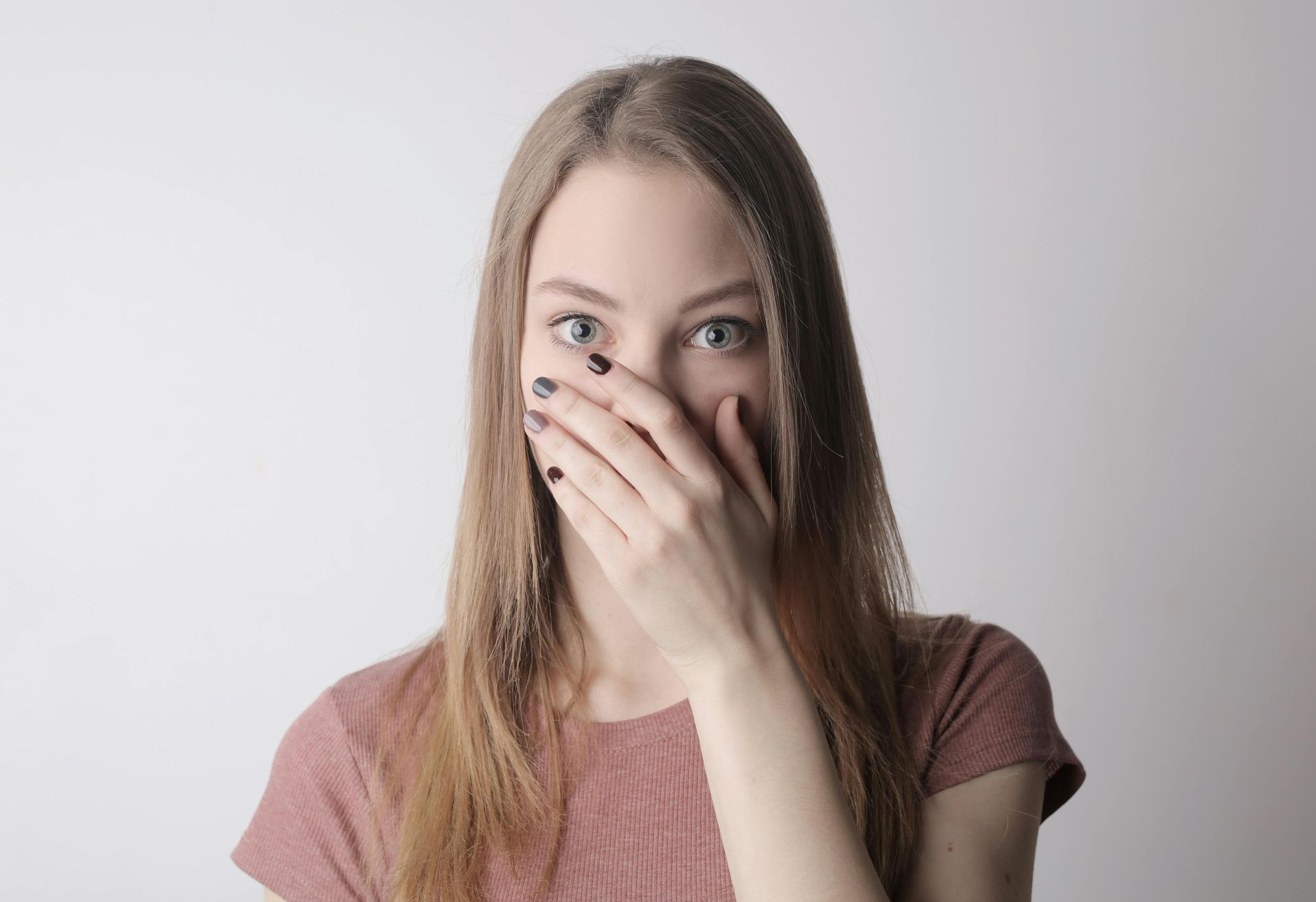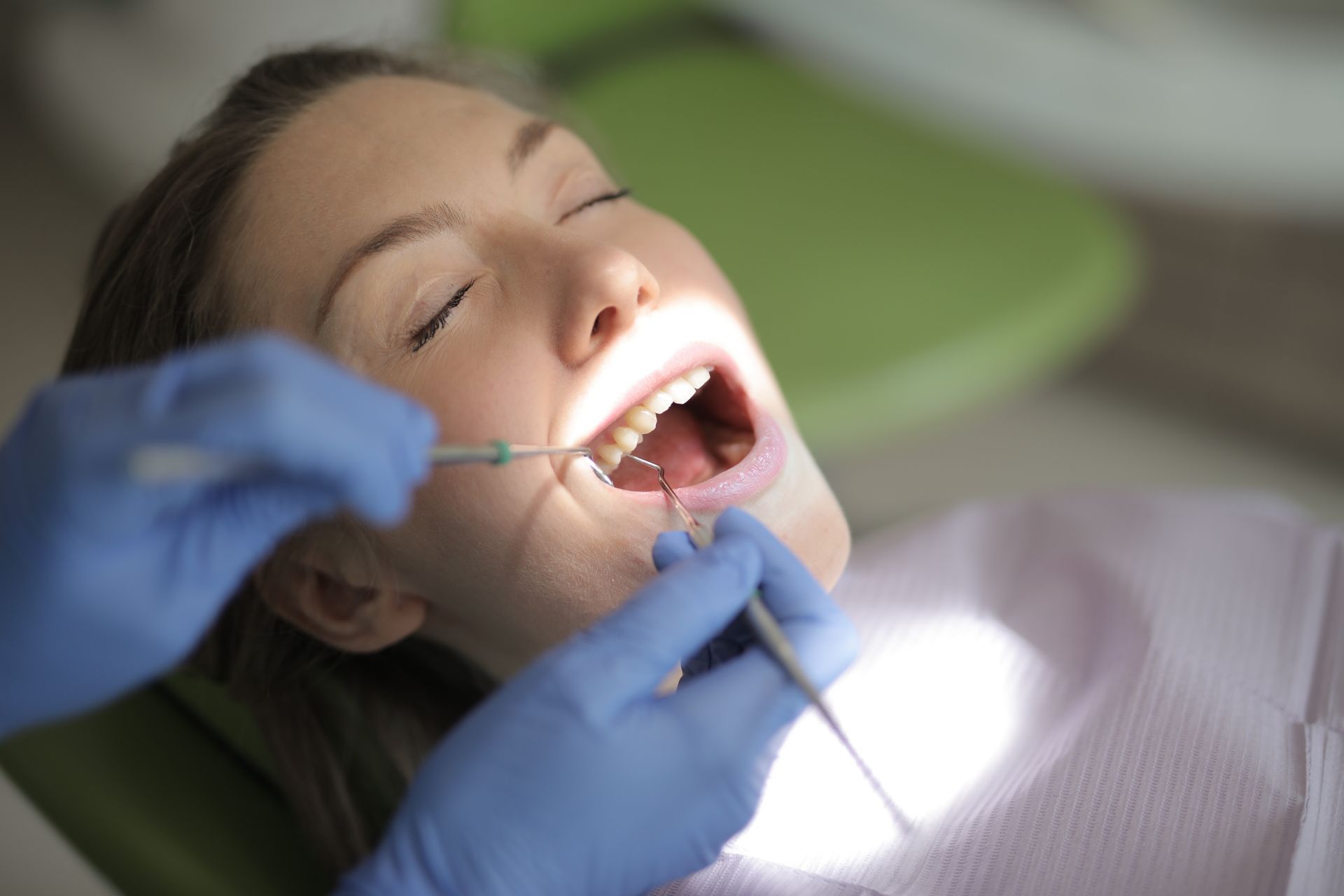Bad Breath
Image credit: Andrea Piacquadio on Pexels
We have all probably experienced this at one point or another... we get a whiff of someone's bad breath and then we think, oh no! What if it's me?!
Called halitosis, bad breath is a frequent or persistent disagreeable smell to one's breath. In most cases, the cause is in the mouth, by bacteria that ferments food debris, producing smelly volatile sulfuric components.
Halitosis can also be caused or aggravated by:
- Having garlic, onions, fish, coffee, or alcohol, which can sometimes last for up to 72 hours.
- Gum diseases such as periodontitis which allow for bacteria to multiply in the space between teeth and gums.
- Tooth decay or faulty fillings can be breeding grounds for bacteria.
- Dry mouth and abnormal functioning of the saliva glands. Saliva helps to clean the mouth and when there isn't enough, food particles remain in the mouth for longer.
- Smoking or using tobacco products, which can cause dry mouth and which can also increase the chances of gum disease.
- Certain medications.
- Infections of the nose, throat, or lungs, which increase the presence of bacteria. For example, pneumonia can cause people to cough up liquid that smells bad.
- Tonsil stones, which is when food gets stuck in the tonsils (located at the back of the throat) and hardens into calcium deposits.
- Gastro-intestinal issues where gastric acid travels up the esophagus, from the stomach.
- Liver issues may cause a sweet, musty breath, and kidney issues may cause the smell of urine. Untreated diabetes can result in breath that smells like nail polish remover.
Image credit: Andrea Piacquadio on Pexels
What if you think your breath smells bad?
You can take action, and here are some ideas:
- Brush your teeth at least twice a day for two minutes each time, making sure you brush the outside, inside, and top of each tooth;
- Use a fluoride toothpaste;
- Floss your teeth at least once a day to clean places that a toothbrush can't reach;
- Gently brush your tongue when brushing your teeth;
- If you wear dentures, keep them clean and remove them at night;
- Try using an antibacterial mouthwash or toothpaste;
- Avoid alcohol, caffeine, and tobacco products;
- Drink water to keep hydrated;
- Avoid sugary foods and drinks to help prevent dental plaque; and
- Get regular dental cleanings and check-ups. Dentists are trained to watch out for issues in and around the mouth and will let you know if an appointment with a doctor or a dental specialist is needed.
Since people of all ages can get bad breath, watching for it in kids could help prevent embarrassment or low self-esteem, and potentially catch any underlying health issues early.
Chewing gum and breath mints can help temporarily, but they mostly only cover up the problem. A good starting point to address bad breath that doesn't go away is to make a cleaning appointment with a dentist and ask for a halitosis assessment.
After all, longer term peace of mind is worth it!
References and resources
- Mayo Clinic on bad breath - https://www.mayoclinic.org/diseases-conditions/bad-breath/diagnosis-treatment/drc-20350925
- The National Health Service of the UK on Bad Breath - https://www.nhs.uk/conditions/bad-breath/
- Cleveland Clinic on bad breath -
https://my.clevelandclinic.org/health/diseases/17771-bad-breath-halitosis






